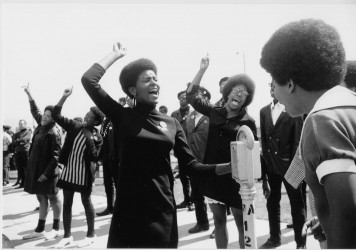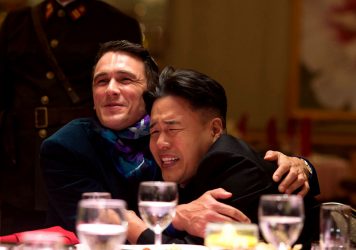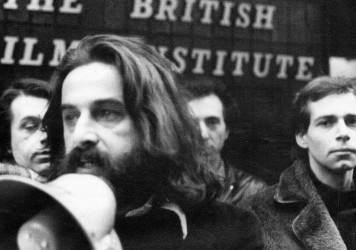Two filmmakers are forced to work for Kim Jong-il in this utterly bizarre true story.
Some stories are so vividly and thrillingly cinematic that, quite simply, they cannot be written. In 1978, the South Korean actress Choi Eun-hee was kidnapped by Kim Jong-il in Hong Kong and held captive in North Korea. Months later, Shin Sang-ok, a critically-acclaimed South Korean filmmaker who also happened to be Eun-hee’s ex-husband, was also abducted in Hong Kong while attempting to find his former wife.
He, too, was brought to North Korea, where he was starved, tortured, and imprisoned for five years. When he was finally released, Sang-ok reunited with his ex-wife as both romantic and creative partner. Within the next two years, the reunited (and soon remarried) couple would helm seventeen films under the jurisdiction of their all-powerful benefactor-captor, before making an impossible escape in 1986.
This extraordinarily bizarre but long-forgotten story has now been revisited in Ross Adam and Robert Cannan’s engaging new documentary, The Lovers and the Despot. Comprising grainy archive footage, convincing recreations, cunningly-selected film clips from Eun-hee and Sang-ok’s extensive filmographies, and interviews with various subjects (including a still-living and wistful Eun-hee), Adam and Cannan find fascinating and detailed angles into a story that might have been just a remarkable chronicle of unlikely resilience.
The Lovers and the Despot digs deeper and starts in earnest as an emotional account of the pain and prickliness of imperfect coupledom. There’s a simple but soulful pleasure to be found in watching Eun-hee tenderly recount how she, a beloved starlet accustomed to VIP treatment, fell in love with the brilliant director who wanted to make movies with her forever, only to later find a chasm opening between them due to a reckless affair and illegitimate pregnancy.
Upon their separate kidnappings, the film reconfigures into an equally riveting and ambiguous examination of how an oppressive confinement could somehow lead to flexibly creative fulfilment. Provided with generous budgets and artistic freedom by a dictatorial cinephile, Eun-hee doesn’t conceal the satisfaction she and her husband found in making these movies, which won them prizes and played European festivals that the couple were allowed to attend, albeit under the vigilant supervision of North Korean guards.
Adam and Cannan don’t shy away from the murkiness of their unusually accommodating internment, even as they refuse to probe Eun-hee on some of the more questionable aspects of her and her husband’s time in (and out of) North Korea. The film mines obvious tension from the thriller-esque kicks of this chapter, but it ultimately loses out by almost completely ignoring the tensions that initially pulled Eun-hee and Sang-ok apart, instead depicting husband and wife as something like a single entity. In spite of this, the film’s poignancy continues to build, especially through interviews with the couple’s now grown-up children, two adults scarred by a traumatic time in their lives in which they thought they’d never see their parents again.
Bewildering to the end, this is a memorable tale of love engendered and enhanced by traitorous friends, double-crosses, and a tyrannical puppet master with cinematic aspirations. It’s a wildly entertaining yarn, but also a revealing reminder that film history itself is so much deeper – and weirder – than we can possibly fathom.
Published 20 Sep 2016
This uncommonly odd, barely-remembered story is fully deserving of further cinematic investigation.
A peculiar record of life-or-death moviemaking, wisely ballasted by emotional honesty.
Here is the type of outlandishly engaging, cinephile-friendly tale that can only exist in the movies.

Stanley Nelson offers a broad survey of the militant political party.

Seth Rogen and James Franco topple communism with comic truth bombs in this jolly satire.

By Sam Thompson
Radical socialist filmmaker Marc Karlin emerged as a key counterculture figure in the 1970s and ’80s.